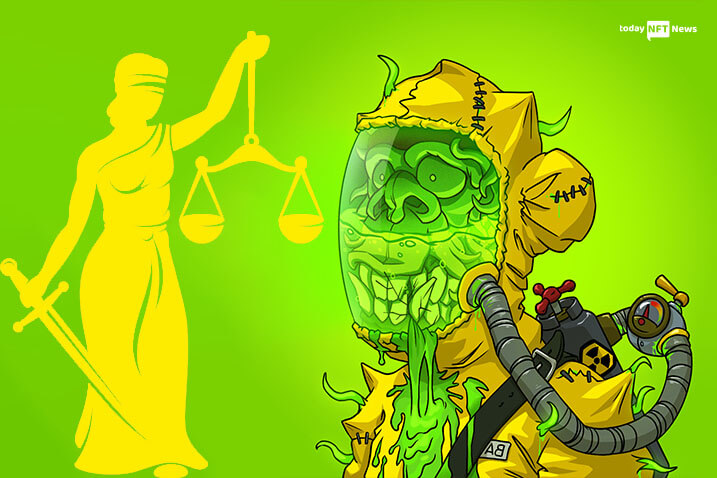SNEAK PEEK
- Aurelien Michel, the collection’s creator, was detained at JFK airport on Wednesday.
- The creator got arrested for scamming $2.9 million in bitcoin.
- The DOJ charged the creator of the Baller Ape Club NFT collection with stealing $2.6 million.
On Thursday, the US Department of Justice said that it had arrested and charged the creator of an NFT scheme that allegedly “rug-pulled” owners out of $2.9 million in bitcoin.
When I’m reality what was happening was the founders were actually not holding to their promised utility leading in to people losing trust and then one day the founders completely disappeared with no notes, nothing. Things went sideways here as lots of people left the community-
— PerfectElectro (@electro_perfect) January 5, 2023
According to an IRS agent referenced in a Department of Justice press release, Michel scammed shareholders by making misleading statements about giveaways, coins with staking functionality, and goods collections, among many other things. However, after the non fungible tokens (NFTs) were sold out, Michel withdrew the money.
Aurelien Michel, the inventor of the Ethereum NFT collection Mutant Ape Planet, was detained Friday night by federal agents at JFK airport in New York City on wire fraud allegations. Michel currently lives in the United Arab Emirates.
Michel said in a social media conversation with existing and potential Mutant Ape Planet NFT buyers that he had staged a rug pull, but only in reaction to the Mutant Ape World community’s behavior.
In June, the DOJ charged $2.6 million in allegations against the developer of the Baller Ape Club NFT series for rug-pulling owners. The first rug-pulling lawsuit brought by the agency was against the Frostie NFT project’s creators, who were accused of defrauding $1.1 million in investors.
Owners of the collection have been giving their point of view on Twitter, saying that James tried to blame his departure on the community, which had grown distrustful due to the lack of engagement. Rug pulls were the most common kind of attack last year, accounting for 119 instances and $200 million in stolen items.
Lana Rhoades was charged with being responsible for one of 2022’s biggest rug pulls after allegedly stepping away with $1.5 million from the minting of an NFT project that has seen less than 1 ETH in secondary market transactions. Despite the frequency of similar events, today’s act is only the third time U.S. authorities have filed charges for them.









